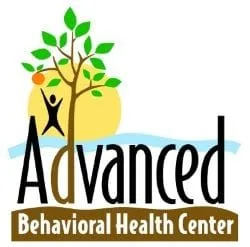The major feature of a psychiatric, or mental health evaluation is one or more face-to-face interviews.
Mental health professionals ask patients open-ended and diagnosis-specific questions to elicit answers that may be relevant in diagnosing a mental health condition. The goal is to learn more about the patient’s current problems and symptoms as well as understand their personal and family psychiatric and medical histories.
A comprehensive psychiatric evaluation may be necessary to diagnose any number of emotional, behavioral, or developmental disorders. An evaluation of a child, adolescent, or adult is made based on behaviors present and in relation to physical, genetic, environmental, social, cognitive (thinking), emotional, and educational components that may be affected as a result of the behaviors presented.
Many times, families, spouses, or friends are the first to suspect that their loved one is challenged by feelings, behaviors, and/or environmental conditions that cause them to act disruptive, rebellious, or sad. This may include; problems with relationships with friends and/or family members, difficulty with work, school, sleeping, eating, substance abuse, emotional expression, development, coping, attentiveness, and responsiveness. It is important for families who suspect a problem in one or more, of these areas to encourage their loved one to seek treatment as soon as possible.
There are three major types of psychiatric evaluations: a general psychiatric evaluation, an emergency evaluation, and a clinical consultation.
A General evaluation intended to collect enough data about the patient to develop an initial psychiatric diagnosis and an appropriate treatment plan.
An emergency evaluation is performed when the patient has thoughts or feelings that are intolerable, or when the patient displays harmful behavior that requires a prompt response.
A clinical evaluation is an assessment requested by another health professional, the patient, a family member or other as a means of helping diagnose, treat, or manage a patient with a suspected mental disorder or behavioral problem.
The following are the most common components of a comprehensive, diagnostic psychiatric evaluation.
- description of behaviors present (i.e., when do the behaviors occur, how long does the behavior last, what are the conditions in which the behaviors most often occur)
- description of symptoms noted (physical and psychiatric symptoms)
- effects of behaviors/symptoms as related to the following: work performance, school performance, relationships and interactions with others (i.e., spouse, co-workers, family members or neighbors), family involvement, and activity involvement.
- psychiatric interview
- personal and family history of emotional, behavioral, or developmental disorders
- complete medical history, including description of the individual’s overall physical health, list of any other illnesses or conditions present, and any treatments currently being administered
- Possibly a physical examination (by a psychiatrist only). In some cases, laboratory tests, blood tests, x-rays, and possibly DNA testing may be necessary to aid in determining whether there may be an underlying unknown health problem.
- educational, speech and language assessments
Once a diagnosis is made, family involvement and active participation in treatment is extremely important. The physician will address questions and provide reassurance by working with you to establish long-term and short-term treatment goals for you and your loved one.
